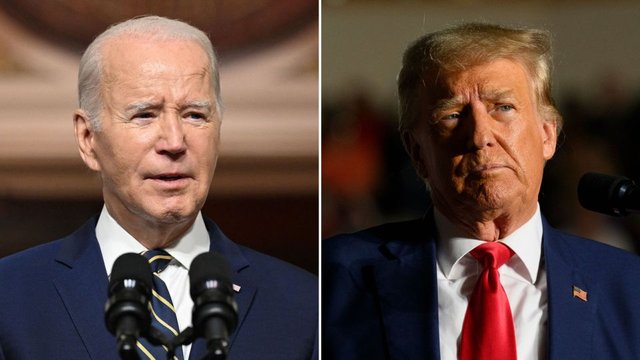
The current legal hurdles that former President Donald Trump is facing have raised a question, in the realm; Is there anything that could disrupt the ongoing deadlock in elections, where the country is almost evenly split between the Republican and Democratic coalitions?
Despite the number of accusations against Trump, his position as the front runner in the 2024 GOP presidential primary has actually strengthened. Though general election polls indicate some signals for him they still suggest another contested race where President Joe Biden usually maintains a slight lead with only a handful of swing states likely to determine the final outcome. According to a survey conducted by The New York Times and Siena College, Trump and Biden were found to be tied at 43 percent in a matchup.
Various factors are coming together including a slowdown in inflation and an increase in Trumps troubles. These factors could potentially give Democrats an advantage in the election in terms of the presidential race. However these forces face challenges due to demographic and geographic divisions that have resulted in an extended period wherein neither party has been able to gain a definitive edge, over the other.
The parties now represent coalitions with vastly different visions of America's future, especially regarding racial and cultural change, making it difficult for either side to break away from the closely contested competition. Democrats have won the popular vote in seven of the past eight presidential elections, suggesting a larger national coalition compared to the GOP. However, the Democrats face challenges in competing outside large metropolitan areas, and the small state bias in the Senate and the Electoral College has kept the GOP highly competitive.
The political system is currently defined by stasis and stand-off, with small majorities for either party in the House and Senate. Each party has established a strong sphere of influence across numerous states, resulting in 80% of states consistently voting the same way in the past four presidential elections.
Recent polls and surveys show that the American electorate is deeply divided along cultural and identity issues, making it challenging for voters to cross over to the other side. This polarization has led voters to choose parties based on their views about America's fundamental identity rather than current conditions or policy priorities.
While some Democrats are optimistic about factors that could strengthen Biden's position, such as the slowdown in inflation and improvements in the job market, the deeply entrenched political divisions make it difficult for either side to break out from the current electoral deadlock. Trump's legal troubles may affect his support, but it's uncertain whether it would be enough to sway the outcome significantly.
Ultimately, a Biden-Trump rematch is not likely to break the existing trench warfare in American politics, and both parties will need to strategize to gain an advantage in the 2024 election.